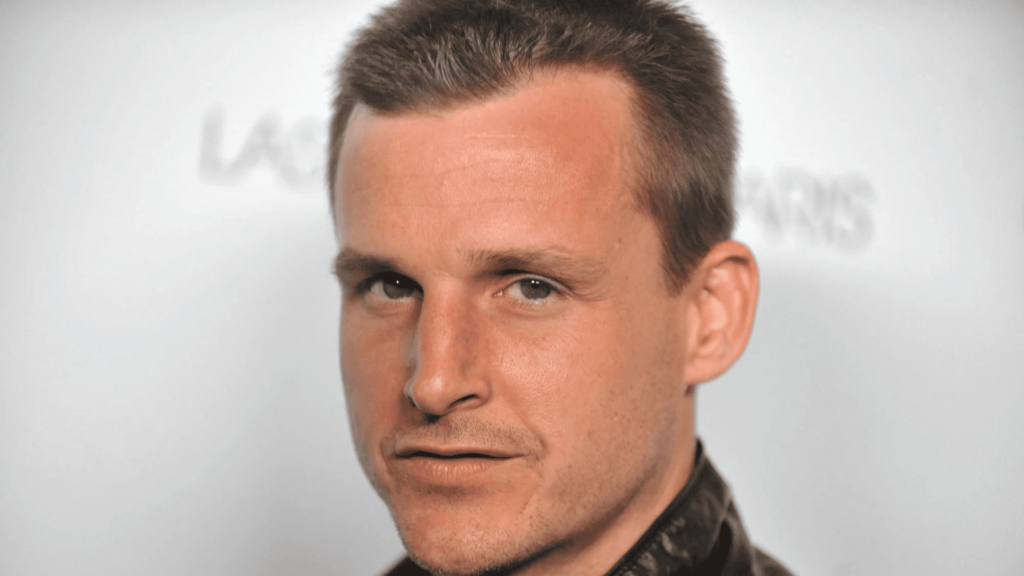In this we will explore about Rob Dyrdek time management, a man who has turned skateboarding into a multimillion-dollar empire, says his secret weapon isn’t just talent or luck it’s mastering time management.
Table of Contents
Rob Dyrdek, known for his successful career as a professional skateboarder, television personality, and entrepreneur, has managed to excel in various fields. His ability to juggle multiple roles and ventures while maintaining a high level of productivity is nothing short of impressive. This blog post delves into the time management secrets that have helped Rob Dyrdek maximize his day and achieve extraordinary success.
Rob Dyrdek’s Daily Routine

Morning Routine
Rob Dyrdek starts his day with a series of habits designed to set a productive tone. His mornings typically begin early, around 5:00 AM, to maximize the day. He begins with a session of meditation or mindfulness practice, helping to clear his mind and set intentions for the day.
Following this, he engages in a physical workout, which not only keeps him fit but also boosts his energy levels and mental clarity. After exercising, Rob dedicates time to a nutritious breakfast, often emphasizing healthy, energizing foods. He then spends a few moments reviewing his goals and priorities, ensuring he’s focused and ready to tackle the day’s tasks.
Work Schedule
Rob Dyrdek structures his work hours meticulously, balancing multiple projects with precision. His day is divided into time blocks, each allocated to specific tasks or ventures. He uses tools like calendars and project management apps to keep track of his commitments and ensure that each project gets the attention it needs.
His workday typically starts around 8:00 AM, beginning with high-priority tasks that require the most focus and creativity. As a television producer, entrepreneur, and professional athlete, Rob juggles meetings, brainstorming sessions, and hands-on work across his various enterprises. He maintains flexibility in his schedule to accommodate unexpected opportunities or challenges, but always adheres to his core time blocks to stay on track.
Suggested: Amazing 7 Day High Protein Vegetarian Diet Plan for Weight Loss
Evening Routine
As the day winds down, Rob Dyrdek has an evening routine that helps him transition smoothly from work to relaxation. He usually wraps up his work by reflecting on the day’s achievements and planning for the next. This reflection includes reviewing what went well, what could be improved, and setting goals for the following day.
Rob then dedicates time to personal interests and family, ensuring a healthy work-life balance. He often engages in relaxing activities such as reading, watching a favorite show, or spending quality time with loved ones. His evening concludes with a wind-down period where he avoids screens and digital distractions, opting for a calm environment to promote better sleep. By 10:00 PM, he’s typically ready for bed, ensuring he gets a full night’s rest to recharge for another productive day.
Some Key Aspects Of Rob Dyrdek Time Management

1. SMART Goals
Rob Dyrdek attributes much of his success to setting SMART goals—Specific, Measurable, Achievable, Relevant, and Time-bound. Here’s how he applies each aspect:
- Specific: Rob ensures his goals are clear and well-defined. Instead of setting a vague goal like “grow my business,” he aims for “launch a new product line by Q3.” This clarity helps him focus on the exact outcome he desires.
- Measurable: To track progress and stay motivated, Rob sets goals that can be measured. For example, “increase social media followers by 20% in six months” provides a clear target to aim for and a way to measure success.
- Achievable: Rob balances ambition with realism. He sets challenging yet attainable goals, such as “secure three new sponsorships for my TV show this year,” ensuring that the goals are within his capacity given his resources and time constraints.
- Relevant: His goals are aligned with his broader vision and business objectives. For instance, “develop a fitness app” might align with his interests in sports and entrepreneurship, ensuring every goal contributes to his overall success.
- Time-bound: Each of Rob’s goals has a deadline, creating a sense of urgency and a timeline for completion. For example, “complete the pilot episode by the end of the quarter” ensures that he stays on track and can manage his time effectively.
Prioritizing Tasks
Rob Dyrdek’s ability to prioritize tasks is key to his productivity. Here are his methods for determining and focusing on the most important tasks:
- Urgency vs. Importance: Rob uses the Eisenhower Matrix to categorize tasks based on urgency and importance. Tasks that are both urgent and important are tackled first, such as finalizing contracts for a new business venture. Important but not urgent tasks, like strategic planning, are scheduled for dedicated time slots.
- Daily Top Three: Every morning, Rob identifies his top three priorities for the day. These are the tasks that will have the most significant impact on his goals. By focusing on these first, he ensures that he’s always making progress on what matters most.
- Time Blocking: Rob allocates specific time blocks for different types of work, such as creative brainstorming, administrative duties, and meetings. This approach helps him concentrate fully on each task without distractions and ensures a balanced approach to his varied responsibilities.
- Eliminating Distractions: To maintain focus, Rob minimizes potential distractions. He sets boundaries, such as designated times for checking emails and social media, allowing him to concentrate on high-priority tasks during peak productivity hours.
- Delegation: Recognizing the importance of leveraging his team, Rob delegates tasks that don’t require his direct involvement. This frees up his time to focus on strategic initiatives and high-impact activities.
2. Time Blocking Technique

Rob Dyrdek’s Time Blocking Technique
Time blocking is a powerful strategy Rob Dyrdek uses to ensure he dedicates specific hours to different activities throughout his day. Here’s how he implements this technique:
- Morning Routine Block: Rob starts his day with a set block of time dedicated to personal development. This includes activities like meditation, exercise, and reviewing his goals for the day. By starting his day with a consistent routine, he sets a positive tone for productivity.
- Creative Work Block: Rob allocates a specific time in the morning for creative tasks when his energy levels and focus are at their peak. This block might include brainstorming new business ideas, developing content for his shows, or working on innovative projects.
- Administrative Tasks Block: Later in the morning or early afternoon, Rob dedicates a block of time to handle administrative tasks. This includes responding to emails, making phone calls, and attending to any urgent business matters. By grouping these tasks together, he minimizes interruptions throughout the day.
- Meeting Block: Rob schedules meetings in a specific time block, usually in the afternoon. By clustering meetings together, he ensures that his creative and administrative blocks remain uninterrupted. This also helps him stay in a focused, collaborative mindset during meetings.
- Exercise and Wellness Block: Physical fitness is crucial for Rob, so he blocks out time for exercise, whether it’s a gym session, a run, or yoga. This not only keeps him healthy but also boosts his energy and mental clarity for the rest of the day.
- Evening Wrap-Up Block: Rob ends his day with a block of time dedicated to reviewing the day’s accomplishments, planning for the next day, and winding down. This might include reading, spending time with family, or engaging in relaxing activities.
Tools and Apps
To keep his schedule organized and efficient, Rob Dyrdek relies on several tools and apps:
- Google Calendar: Rob uses Google Calendar to plan and manage his time blocks. The app allows him to schedule events, set reminders, and view his daily, weekly, and monthly schedule at a glance.
- Trello: For project management and task organization, Rob uses Trello. This app helps him create boards for different projects, assign tasks, set deadlines, and track progress. It’s particularly useful for managing multiple business ventures and collaborations.
- Evernote: Rob uses Evernote to capture ideas, take notes, and store important information. This app allows him to organize his thoughts and access them from any device, making it easier to stay on top of creative projects and business plans.
- Asana: Asana is another project management tool Rob utilizes for team collaboration. It helps him assign tasks to team members, track project timelines, and ensure that everyone stays aligned with their responsibilities.
- Headspace: For meditation and mindfulness, Rob uses Headspace. This app offers guided meditation sessions that help him maintain mental clarity and reduce stress, an essential part of his morning and evening routines.
- MyFitnessPal: To track his fitness and nutrition, Rob uses MyFitnessPal. This app allows him to log workouts, monitor his diet, and stay on top of his health goals, ensuring he maintains the physical stamina needed for his demanding schedule.
3. Delegation and Team Management

Building a Strong Team
Rob Dyrdek understands that success isn’t achieved alone. He emphasizes the importance of surrounding oneself with capable and talented individuals. Here’s how he builds a strong team:
- Hiring the Right People: Rob is meticulous about hiring individuals who not only have the necessary skills but also share his vision and work ethic. He looks for team members who are proactive, innovative, and aligned with his goals.
- Fostering a Positive Culture: Creating a supportive and motivating work environment is crucial. Rob cultivates a culture of collaboration and mutual respect, where team members feel valued and encouraged to contribute their best.
- Continuous Development: Rob invests in the continuous development of his team. He encourages ongoing education, training, and personal growth. By providing opportunities for development, he ensures that his team members are always improving and adapting to new challenges.
More Time Management Tips: Effective Time Management For Managers (With 5 Helpful Tips)!
Delegating Tasks
Effective delegation is a key aspect of Rob Dyrdek time management strategy. Here’s how he delegates tasks to ensure productivity and efficiency:
- Identifying Strengths: Rob takes the time to understand the strengths and weaknesses of each team member. By knowing who excels in what area, he can delegate tasks more effectively, ensuring that the right people are handling the right responsibilities.
- Clear Communication: Clear and concise communication is essential for successful delegation. Rob ensures that when he delegates tasks, his team members fully understand what is expected of them. This includes setting clear goals, deadlines, and providing any necessary resources or support.
- Trust and Empowerment: Trust is a fundamental component of delegation. Rob empowers his team members by giving them the autonomy to complete tasks in their own way. This trust not only boosts morale but also encourages creativity and innovation.
- Monitoring and Feedback: While Rob gives his team the freedom to execute tasks, he also monitors progress and provides feedback. Regular check-ins and constructive feedback help keep projects on track and ensure that any issues are addressed promptly.
4. Adapting to Change
Rob Dyrdek’s success is partly due to his ability to remain flexible and adapt his schedule as needed. Here’s how he manages to stay adaptable:
- Dynamic Scheduling: Rob understands that a rigid schedule can sometimes hinder productivity. He employs a dynamic approach to scheduling, allowing for adjustments as priorities shift or unexpected events occur. This flexibility ensures he can handle urgent tasks without derailing his overall plan.
- Embracing New Opportunities: Rob is always open to new opportunities. He maintains a flexible mindset, ready to pivot when necessary. This adaptability enables him to take advantage of new ventures and projects that align with his goals, even if they weren’t part of the original plan.
- Continuous Learning: Staying adaptable requires a commitment to continuous learning. Rob constantly seeks out new information and skills that can help him navigate changing circumstances. This dedication to personal and professional growth keeps him prepared for any situation.
5. Embracing Challenges
Rob Dyrdek views challenges not as obstacles, but as opportunities for growth and innovation. Here’s how he tackles unexpected challenges and turns them into opportunities:
- Problem-Solving Mindset: When faced with a challenge, Rob approaches it with a problem-solving mindset. He analyzes the situation, identifies potential solutions, and takes decisive action. This proactive approach minimizes the impact of challenges and often leads to innovative solutions.
- Staying Positive: Maintaining a positive attitude is crucial when dealing with challenges. Rob stays optimistic and views setbacks as temporary hurdles. This positivity helps him stay motivated and focused on finding solutions rather than dwelling on problems.
- Leveraging Resources: Rob is adept at leveraging his network and resources when tackling challenges. Whether it’s seeking advice from mentors, collaborating with his team, or utilizing technological tools, he ensures he has the support and resources needed to overcome obstacles.
- Learning from Failure: Rob understands that failure is a part of success. He embraces failures as learning opportunities, analyzing what went wrong and how he can improve in the future. This resilience enables him to bounce back stronger and more prepared for future challenges.
- Innovation and Creativity: Challenges often inspire Rob to think outside the box. He uses these moments to innovate and come up with creative solutions. This approach not only helps him overcome obstacles but also leads to new and improved ways of doing things.
- outcomes and results. By allowing his team members to take ownership of their tasks, he fosters a sense of responsibility and accountability.
6. Integrating Personal Life with Professional Responsibilities
Rob Dyrdek exemplifies a balanced approach to integrating his personal life with his professional responsibilities. Here’s how he achieves harmony between the two:
- Clear Boundaries: Rob sets clear boundaries between his work and personal life. He designates specific times for work and personal activities, ensuring he can fully focus on each without interference.
- Family Time: Despite his busy schedule, Rob prioritizes family time. He makes it a point to spend quality time with his family, whether through shared meals, activities, or simply being present at home. This commitment helps him maintain strong personal relationships.
- Shared Interests: Rob often involves his family in his professional endeavors when appropriate. By sharing his interests and projects with his loved ones, he creates a sense of inclusion and support, which strengthens their bond.
- Flexible Scheduling: Rob’s dynamic approach to scheduling allows him to adjust his work commitments around important personal events. This flexibility ensures he doesn’t miss out on significant family moments while still meeting his professional obligations.
- Efficient Time Management: Rob’s efficient time management practices, such as time blocking and prioritization, enable him to maximize productivity during work hours. This efficiency leaves him with more free time to dedicate to his personal life.
7. Self-Care Practices

Maintaining Overall Well-Being
Rob Dyrdek understands the importance of self-care for maintaining his overall well-being. Here are some of his self-care routines:
- Regular Exercise: Physical fitness is a key component of Rob’s self-care regimen. He engages in regular exercise routines, such as running, weightlifting, or yoga, to keep his body healthy and his mind sharp.
- Healthy Diet: Rob maintains a balanced and nutritious diet. Eating well provides him with the energy and focus needed to tackle his busy schedule while also supporting his long-term health.
- Mindfulness and Meditation: Incorporating mindfulness and meditation into his daily routine helps Rob manage stress and stay centered. These practices enhance his mental clarity and emotional resilience, enabling him to handle the demands of his career and personal life.
- Adequate Sleep: Rob prioritizes getting enough sleep each night. Adequate rest is crucial for overall health, cognitive function, and productivity. By ensuring he gets quality sleep, Rob sets himself up for success each day.
- Personal Hobbies: Engaging in personal hobbies and interests outside of work allows Rob to unwind and recharge. Whether it’s skateboarding, creative projects, or spending time outdoors, these activities provide a necessary break from his professional responsibilities.
- Regular Breaks: Rob takes regular breaks throughout his day to prevent burnout and maintain high levels of productivity. Short breaks help him stay refreshed and focused, reducing stress and enhancing overall well-being.
Do You Know?: The Truth Behind Anne Hathaway’s Weight Loss: Debunking Myths and Rumors
Final Thoughts
Rob Dyrdek’s impressive career and personal life balance are a testament to his effective time management strategies. By establishing a structured morning routine, diligently planning his work schedule, and adhering to a productive evening routine, Rob maximizes his productivity and efficiency. His approach to setting SMART goals, prioritizing tasks, and utilizing time blocking techniques demonstrates his commitment to achieving success in multiple endeavors.
Additional Resources
Podcasts
- The Tim Ferriss Show: Tim Ferriss interviews top performers from various fields to uncover their strategies for success, including time management tips.
- Beyond the To-Do List: Host Erik Fisher talks with productivity experts about how to implement practical productivity strategies in everyday life.
- The Productivity Show: Asian Efficiency shares actionable productivity tips and time management strategies.
Websites and Blogs
- Lifehack.org: Offers articles on productivity, time management, and personal development.
- Zen Habits: Leo Babauta’s blog focuses on simplifying life and improving productivity.
- MichaelHyatt.com: Michael Hyatt provides insights on leadership, productivity, and personal development.
Online Courses
- “Time Management Mastery: Do More, Stress Less” on Udemy: This course covers various time management techniques to boost productivity.
- “Getting Things Done” on LinkedIn Learning: Based on David Allen’s GTD methodology, this course helps you organize tasks and manage time effectively.
- “Productivity and Time Management for the Overwhelmed” on Coursera: Offered by UC Irvine, this course teaches essential time management skills.
Tools and Apps
- Trello: A project management tool that helps organize tasks visually.
- Todoist: A powerful to-do list app that helps manage tasks and deadlines.
- RescueTime: Tracks time spent on various activities to help you understand and improve your productivity habits.
Workshops and Seminars
- FranklinCovey Workshops: Offers training programs on time management and productivity.
- Getting Things Done (GTD) Seminars: Conducted by David Allen’s company, these seminars provide in-depth training on the GTD methodology.
YouTube Channels
- Thomas Frank: Focuses on productivity tips, study hacks, and personal development.
- Ali Abdaal: Shares insights on productivity, effective study techniques, and time management.
- Matt D’Avella: Covers minimalist approaches to productivity and time management.
Articles and Research Papers
- Harvard Business Review: Offers numerous articles on time management strategies and productivity.
- Psychology Today: Features articles on the psychological aspects of time management and productivity.
- Journal of Applied Psychology: Contains research papers on time management techniques and their effectiveness in various settings.
Books
- “The Effective Executive” by Peter F. Drucker: A classic on time management and effectiveness in leadership roles.
- “Your Best Year Ever: A 5-Step Plan for Achieving Your Most Important Goals” by Michael Hyatt: Provides a structured approach to setting and achieving goals.
- “Work Smarter, Not Harder: 18 Productivity Tips That Boost Your Work Day Performance” by Timo Kiander: Offers practical tips to enhance productivity.









